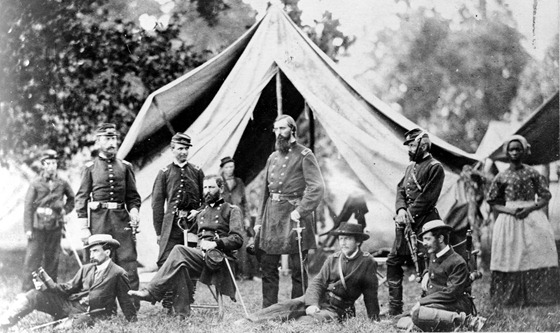August 8 — To-day we moved to Orange Court House. We passed through Summerset, a little hamlet eight miles west of the Court House. Orange Court House is a small town situated on the Orange and Alexandria Railroad, about nine miles from Gordonsville. We are camped in a field east of town. There are a great many infantry camped around here, and from all appearances the butcher business will be flourishing in a few days, and war that is budding for bloom will soon break out in a fresh place.
This is a beautiful night. The moon hangs like a great refulgent shield in a clear sky and bathes the dewy hills with a flood of silvery light. Not a speck of cloud stains the cerulean dome through which the brilliant night queen marches among the silent stars that glow along her pathway like tiny islands of gold floating in a pale blue sky. As she leads her shining train toward the crimson couch of dying day, the soft still air that breathes over the pasture fields and creeps through the shadowy woodlands and along the grassy hillsides, then plays over the cheeks of a thousand sleeping soldiers couched on nature’s carpet, is as soothing and delightful as the zephyrs that play when the ocean storms cease.
At midnight a brass band which I think came on an incoming train played some five or six pieces, the last of which was “Home, Sweet Home.” As the familiar strains of the grand old piece stole through the midnight air they seemed to me like sweet echoes from the bending skies which wake a thousand thoughts of other days, of home and friends far away, that perhaps I will never see again; of happy scenes in the peaceful days of childhood that now return no more; all rushed in solemn troops through my memory as sadly as a weird night wind that sighs and moans through the strings of a broken harp. I know that there are hundreds of men lying on the silent hills around me who will never see home again nor hear the friendly voices of loved ones that are dreaming far away.
I tried to banish the reverie, but it sticks to me even after the music has died away, and I wish for the power and might to rise and shell off my blanket and smash to atoms every implement of war in all creation, so that we could all go home satisfied and gratified and dwell in peace forevermore with all mankind.











